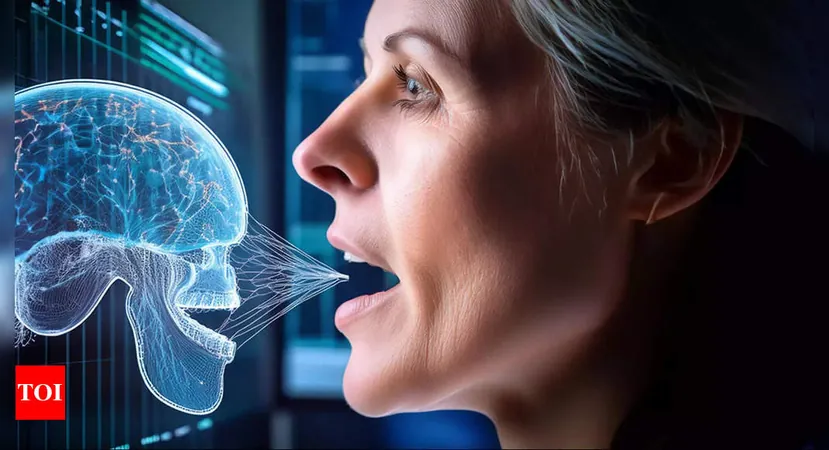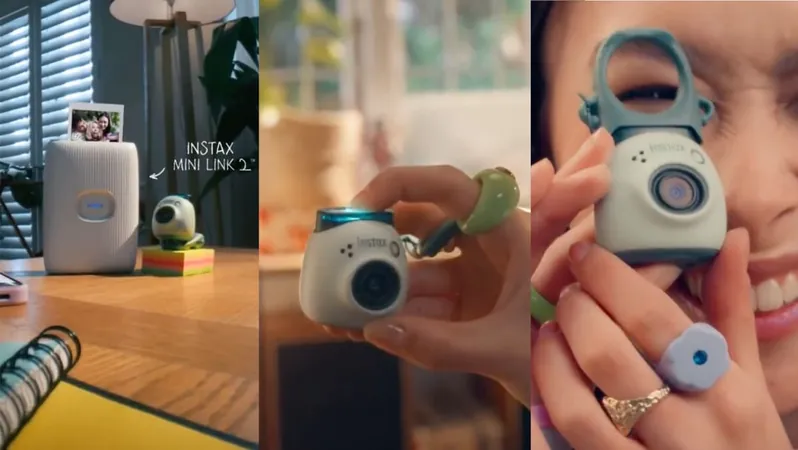
Revolutionizing Healthcare: AI's Voice Analysis to Diagnose Diseases
2024-09-24
Revolutionizing Healthcare: AI's Voice Analysis to Diagnose Diseases
In an exciting development for modern medicine, researchers are harnessing the power of artificial intelligence (AI) to diagnose various diseases through the analysis of voice recordings. The US National Institutes of Health (NIH), along with the University of South Florida (USF), Cornell University, and ten other collaborators, is collecting vast amounts of voice data as a part of the Bridge2AI initiative. This groundbreaking technology aims to identify conditions such as Parkinson's disease, depression, and diabetes by closely examining vocal features.
Just like how a mother can instantly determine her child's mood through their voice over a long-distance call, AI is edging closer to achieving similar capabilities. By analyzing mere seconds of audio, AI can detect a range of health issues that previously required more invasive and time-consuming diagnostic methods.
The NIH's collaborative effort dissects various vocal characteristics—like volume, speech tempo, intonation, and even subtler elements such as vocal cord vibrations and breathing patterns. The goal is not only to diagnose speech disorders but also to identify neurological diseases, mental health disorders, respiratory issues, and even autism spectrum disorders.
According to Dr. Yaël Bensoussan, director of the USF Health Voice Center, “Voice has the potential to be a biomarker for several health conditions. By creating a framework that incorporates extensive datasets using today’s advanced technology collaboratively, we can dramatically change how voice is utilized to assist clinicians in diagnosing a variety of diseases.”
Certain vocal patterns offer strong indicators of specific health conditions. For instance, slurring often signals a potential stroke, while a slower, lower voice may indicate Parkinson's disease. Moreover, mental health professionals, like psychologist Maria Espinola from the University of Cincinnati College of Medicine, have observed that people suffering from depression exhibit more monotone speech patterns, whereas those with anxiety often speak rapidly and have irregular breathing.
Innovations in voice analysis tools have led to impressive findings. For example, a study published in the Mayo Clinic's digital health journal demonstrated the capability of AI to detect type 2 diabetes with over 80% accuracy from just a 10-second voice sample from an Indian participant group. By analyzing phone conversation recordings alongside basic health information, researchers were able to deliver accurate preliminary diagnoses.
Despite the potential of AI, concerns arise about the accuracy of its diagnoses. Vocal similarities may stem from various non-medical factors, leading to potential misdiagnoses. Experts emphasize that while AI can aid in patient screening, it is ultimately trained medical professionals who possess the nuanced judgment required for definitive diagnoses.
Voice data privacy is another critical issue, compounded by the need for machine learning technologies to process a wide variety of voices to ensure equitable outcomes across demographics. Grace Chang, co-founder of Kintsugi—a company focused on using voice analysis for telehealth—underscores the importance of extensive and diverse datasets: “You really need to have a very large, diverse and robust set of data.”
As AI technology advances, it holds tremendous promise for enhancing patient monitoring and support. For instance, Kintsugi’s voice-analysis tools allow healthcare providers to identify patients who might benefit from additional help based on their vocal inflections.
As we look to the future, the integration of AI in diagnosing diseases through voice analysis may be a transformative step toward more efficient, accessible, and personalized healthcare. With further developments and rigorous testing, the help of AI could soon become a crucial part of patient assessment, proving that sometimes, just a voice can speak volumes about health.
Stay tuned as we continue to explore how technology shapes our lives and offers unprecedented insights into our well-being!



 Brasil (PT)
Brasil (PT)
 Canada (EN)
Canada (EN)
 Chile (ES)
Chile (ES)
 España (ES)
España (ES)
 France (FR)
France (FR)
 Hong Kong (EN)
Hong Kong (EN)
 Italia (IT)
Italia (IT)
 日本 (JA)
日本 (JA)
 Magyarország (HU)
Magyarország (HU)
 Norge (NO)
Norge (NO)
 Polska (PL)
Polska (PL)
 Schweiz (DE)
Schweiz (DE)
 Singapore (EN)
Singapore (EN)
 Sverige (SV)
Sverige (SV)
 Suomi (FI)
Suomi (FI)
 Türkiye (TR)
Türkiye (TR)